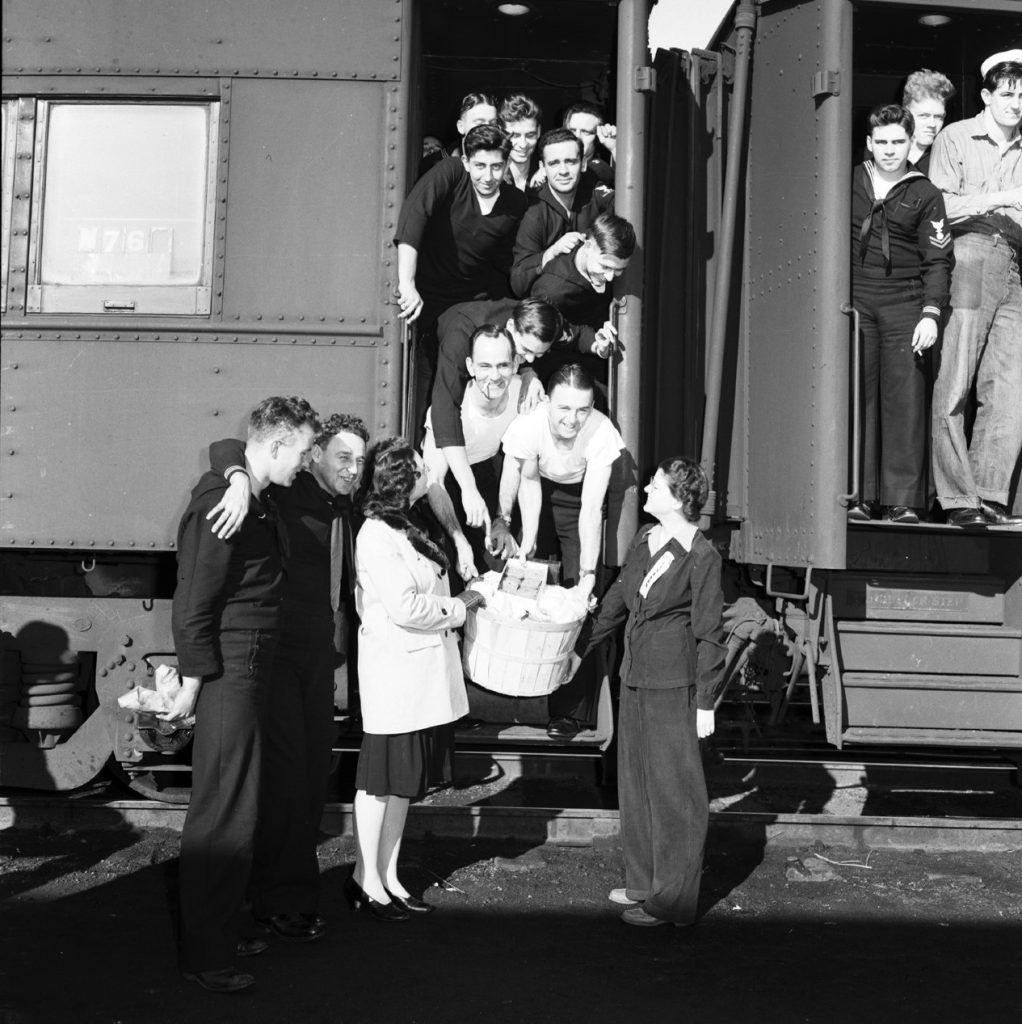
Maybe you’ve read the book, Once Upon a Town: The Miracle of the North Platte Canteen. Although the New York Times bestseller was published in 2003, I only recently discovered it in my search for some beach reading by a favorite writer, Bob Greene. The book is a World War II story described this way: In search of “the best America there ever was,” bestselling author and award-winning journalist Bob Greene finds it in a small Nebraska town few people pass through today—a town where Greene discovers the echoes of the most touching love story imaginable: a love story between a country and its sons.
North Platte, Nebraska, in the 1940s was a town of 12,000 that sat along a well-used Union Pacific passenger rail line. Through the course of the war, over 6 million service men and women passed through the depot of this little town, on their way from one end of the country to the other, preparing for battle in the Pacific campaign or the European fronts. The town made a commitment that every troop train would receive a warm welcome and baskets of food during their quick stop while the train took on more coal and received other service needs. At its peak, the town accommodated over 30 stops a day. With the help of neighboring towns and counties, North Platte residents made sure that every soldier passing through their depot was greeted with smiles, thank yous, homemade food, newspapers, and many other creature comforts of home.
With the help of a sign-in registry available to the soldiers who stopped at the Canteen, Greene was able to find many veterans across the country to interview them about their Canteen experience. (The book was researched when many World War II vets were still with us.) He learned that the reputation of the Canteen spread throughout the campaigns overseas—soldiers often finding a common bond through their Canteen experiences. As troop trains would approach North Platte, soldiers who had already been through the town would tell everybody in their train car that they were “in for a real treat.” And the soldiers were never disappointed. The recurring theme in recollections of the veterans went along these lines: “You felt so loved. It was a touch of home.” These words were often shared through tears as veterans recalled their Canteen stops. The Canteen had become a place of love and solace in the soldiers’ journeys to unknown destinations and fates. It was a peaceful pause in the middle of anxious chaos. Many North Platte residents who shared spoke of how they prayed for the soldiers they met.
And I got to thinking. This Canteen story is a spot-on analogy for the calling of the church and communities of believers. We are all on journeys of unknown fates and destinations. Our journeys are chaotic, filled with hurt, anxiety, fear. We need a Canteen in our lives: a place where we can be received and loved, loved in a way that’s like nothing else on earth, loved in a way that expresses safety and assurance.
I’m reminded of those “one another” verses in the New Testament. To forgive one another. To accept one another. To love one another. And in most cases, to do this “just as” Jesus has forgiven us, has accepted us, has loved us.
Those who interact with followers of the gospel message should walk away from believers feeling loved, affirmed, assured—whether a pass-by in a hallway or deep friendship. Every day affords us these opportunities: interacting with co-workers, serving in a food pantry, managing family, to name just a few examples. Just as the residents of little North Platte did, we should go to great lengths to be sure that no one in our spheres of interaction goes away emotionally or spiritually hungry, that they leave our personal depots feeling loved and thanked, that they take with them a peaceful feeling that will provide strength as they travel their chaotic, uncertain journeys of unknown fates.
DOWNLOAD personal study exercise “A Big Lesson from a Small Town”